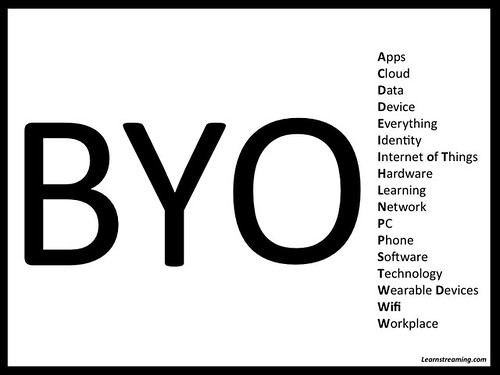
The success of your startup is dependent on so many things — your employees, your investments, your business plan, and even the technology you use. That’s why you can’t neglect a single detail. So, take a look at these six innovative technology waves that your startup company needs to employ to drive success.
Geo-Positioning Technology to Target Customers by Location
Smartphones and tablets can pinpoint your location with accuracy of only a few feet away. This is because of the geo-positioning sensors in each device. The main reason people use this technology is to get real-time directions from one place to another, especially while driving. It is simple to use and so much easier to follow than a map. However, the GPS isn’t the only useful feature of geo-positioning technology. You can use this technology to your advantage in your business.
There are several things your business can do with geo-positioning technology. You can create an app that helps customers find your location and make appointments. For instance, Great Clips has an app to do this very thing. You can also register your business for the check-in games, like Gowalla and Foursquare, where customers can tell you when they visit your business and then you can reward them in various ways.
Ambitious mobile startups are always finding new and clever ways to take advantage of the smartphone GPS trend. Back in March, Apple paid a cool $20 million for WifiSlam’s indoor pinpoint location tech. There’s no question about it, geo-targeting is big business in the mobile space.
Contact Management Software to Stay Connected with Customers
According to the U.S. Small Business Administration, 50 percent of new businesses fail within the first five years, for various reasons. This could be because of a lack of experience, poor credit arrangements, bad location, competition, and a myriad of other issues. It could also be because the startup failed to grasp the demands of their target consumer and their expectations.
One example of this is when a new business doesn’t use contact management software or similar technology to track their customers’ data and stay organized with their customer service. Customers today expect a deeper and more intimate level of connection with their chosen brands. Social media, newsletters and notifications are a huge part of customer service. Even the startups with great products struggle if they fail to truly connect with their customers.
There are many great CRM platforms available for brand new or early stage companies. Industry giants like Microsoft CRM and SalesForce offer tiered pricing plans, cloud SaaS services and mobile apps, but they also can be very pricey and overpowered for some startups. The CRM extension Streak provides a free alternative in consumer management by giving smaller startups the tools they need without the bells and whistles offered by larger platforms.

Targeted Advertisements to Reach Customers through Online Search
A Harris Interactive Poll shows that the average U.S. adult goes on the Internet for 13 hours per week. This time is distributed between social media, email, online search, and other online tasks. This gives startups a unique opportunity to use technology to reach customers in a way they couldn’t do in the past — targeted advertising.
Both social media and search engines sell advertising space that can target virtually any demographic a startup wants to reach. This is because users allow social media sites and search engines to collect user information as part of their terms of use. This means that when you place an advertisement, it is only seen by the people you want to see it. This saves you money and helps you reach a more targeted audience. Startups that don’t take advantage of this are losing out on hundreds to thousands in sales and will have a much tougher time breaking through the clutter of their competitive niche.
Mobile Devices to Connect with Customers Anytime and Anywhere
Businesses used to be tied down to one location because desktop computers and servers were not portable, and neither were phones. This meant only doing business during the day from a typical 9:00 to 5:00. However, businesses now have the flexibility to do business wherever they want thanks to cloud computing and always-on mobile devices. These technological advancements open up your startup to customers around the world and to people that want to contact you during off business hours.
Cloud computing basically replaces traditional business servers. This is because all your business information is stored online in one secure place that can be accessed from anywhere there is an internet connection. Cloud computing also reduces the amount of down time, meaning your business can run more efficiently at a lower cost.
Mobile devices also give businesses the portability they need to serve customers. This means your employees can answer phone calls and emails, and do business from home, the park, a restaurant, or anywhere else. Thanks to the BYOD phenomenon, startup business owners have also been able to keep in contact with their consumers using their best Android tablets, ultrabooks or smartphones anywhere and at any time.
Biometric Authentication Instead of Passwords
Information security has been a growing concern ever since the Internet was launched. However, new innovation in technology is changing that. Startup businesses can now use biometric data to accurately identify returning customers. And, this can be done instead of using passwords that people always forget.
One example of this technology is on the new iPhone 6. It has a fingerprint scanner that can unlock the phone. Plus, many smartphones and tablets already use facial-recognition software. Your business can start implementing this same technology to verify customer information, which will help your customers feel secure, and happy. Adapting cutting edge tech from the ground up can also help to define your startup as a company that understands the modern consumer and differentiate from the competition.
Increased Payment Options and Rewards for Customers
Startups can also reach more customers through the Internet because they are no longer tied down by physical locations. However, some customers are reluctant to buy things on the Internet for fear of being ripped off with no transparent accountability. Technology that guarantees security is changing the way that many users think about purchasing things on the internet. For instance, you can be more transparent with your consumers by offering trusted digital payment services like PayPal, Square or PayMill in addition to the traditional credit card option. Consumers love choice, especially when it comes to their wallet!
What other types of innovative technology do you think can help startups succeed? Share your ideas in the comments below.











